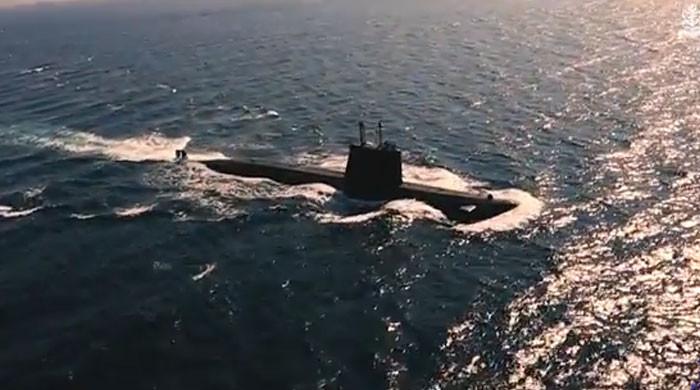- Pakistan expects the first Chinese submarine to enter service in 2026.
- Islamabad orders eight submarines under $5 billion Chinese deal.
- Pakistan remains China’s largest buyer of arms and defense equipment.
Pakistan’s navy expects its first Chinese-designed submarine to enter active service next year, the country’s top admiral told Chinese state media, bolstering Beijing’s bid to counter regional rival India and project power toward the Middle East.
A deal under which Islamabad will take delivery of eight Hangor-class submarines by 2028 is “progressing smoothly,” Admiral Naveed Ashraf said. Global Times in an interview published on Sunday, the submarines added that they would increase Pakistan’s ability to patrol the North Arabian Sea and the Indian Ocean.
The update on the Chinese submarine deal follows Pakistan’s air force using Chinese-made J-10 fighter jets in May to shoot down Indian air force aircraft, including the French-made Rafale.
The spat between the nuclear-armed neighbors surprised many in the military community and raised questions about the superiority of Western hardware over Chinese alternatives.
Under the terms of the submarine deal – reportedly worth up to $5 billion – the first four diesel-electric attack submarines will be built in China, with the remaining vessels assembled in Pakistan to improve the country’s technical capabilities.
Pakistan has already launched three of the submarines into China’s Yangtze River from a shipyard in the central province of Hubei.
“Platforms and equipment of Chinese origin have been reliable, technologically advanced and suitable for the operational requirements of the Pakistan Navy,” Ashraf told the publication published by the ruling Communist Party’s People’s Daily.
“As modern warfare evolves, new technologies such as unmanned systems, artificial intelligence and advanced electronic warfare systems are becoming increasingly important. The Pakistan Navy is focusing on these technologies and exploring cooperation with China,” Ashraf was also quoted as saying.
Islamabad has long been Beijing’s largest arms customer, and in the period 2020-2024 it bought over 60% of China’s arms exports, data from the Stockholm International Peace Research Institute show.
Built up billions of dollars
Along with billions in arms sales, Beijing has invested heavily in expanding its links to the Arabian Sea through a 3,000 km (1,864.11 miles) economic corridor that stretches from China’s Xinjiang to the deep-water port of Gwadar.
The China-Pakistan Economic Corridor, part of President Xi Jinping’s flagship “Belt and Road” infrastructure initiative, aims to secure a route for the world’s biggest energy importer to bring supplies from the Middle East around the Malacca Strait – a strategic choke point between Malaysia and Indonesia that could be blocked in wartime.
“This cooperation (with China) goes beyond hardware; it reflects a shared strategic vision, mutual trust and a long-standing partnership,” Ashraf said.
“In the coming decade, we expect this relationship to grow, encompassing not only shipbuilding and training, but also improved interoperability, research, technology sharing and industrial collaboration.”



